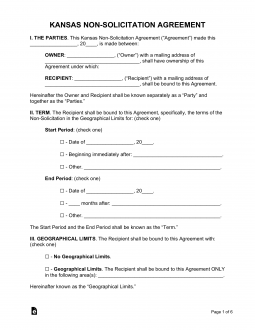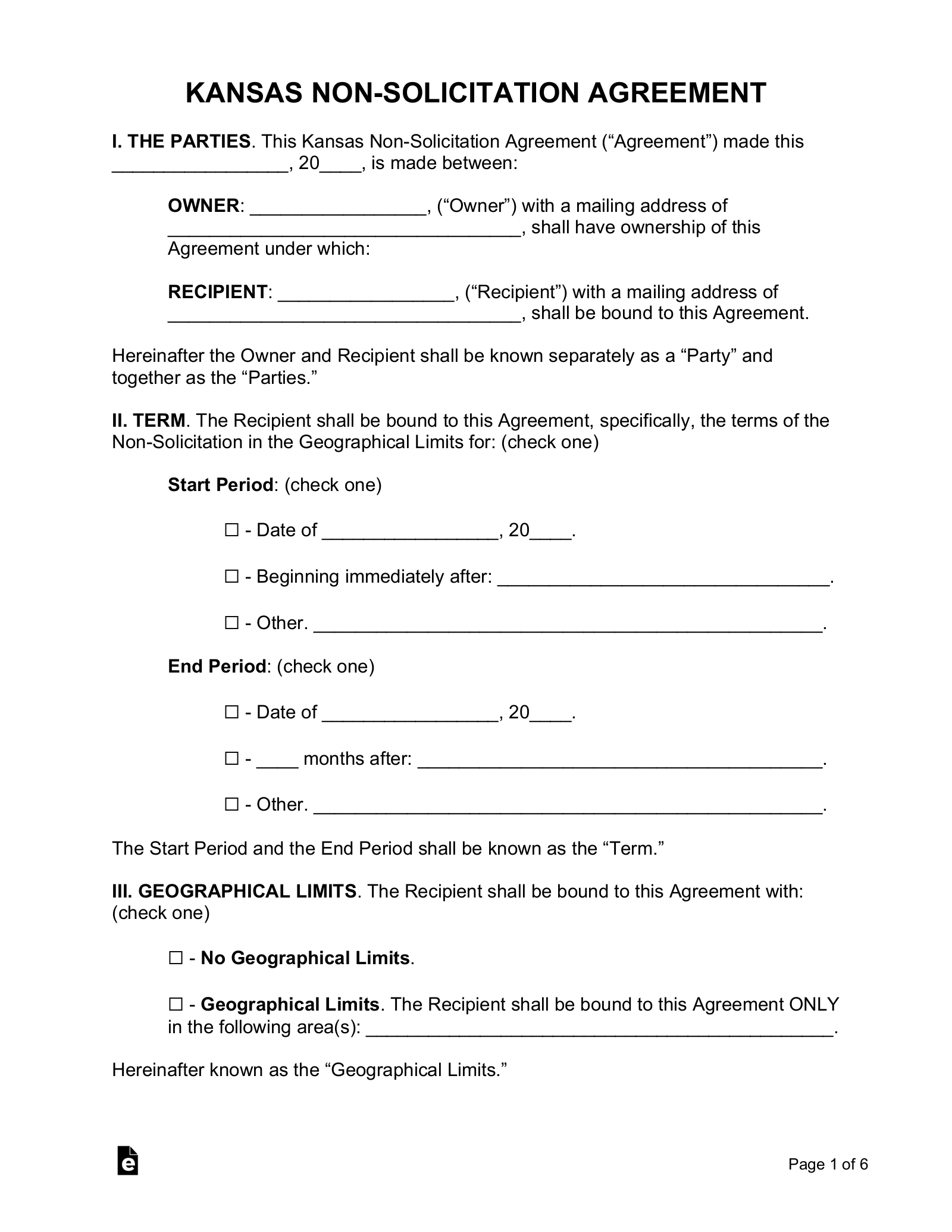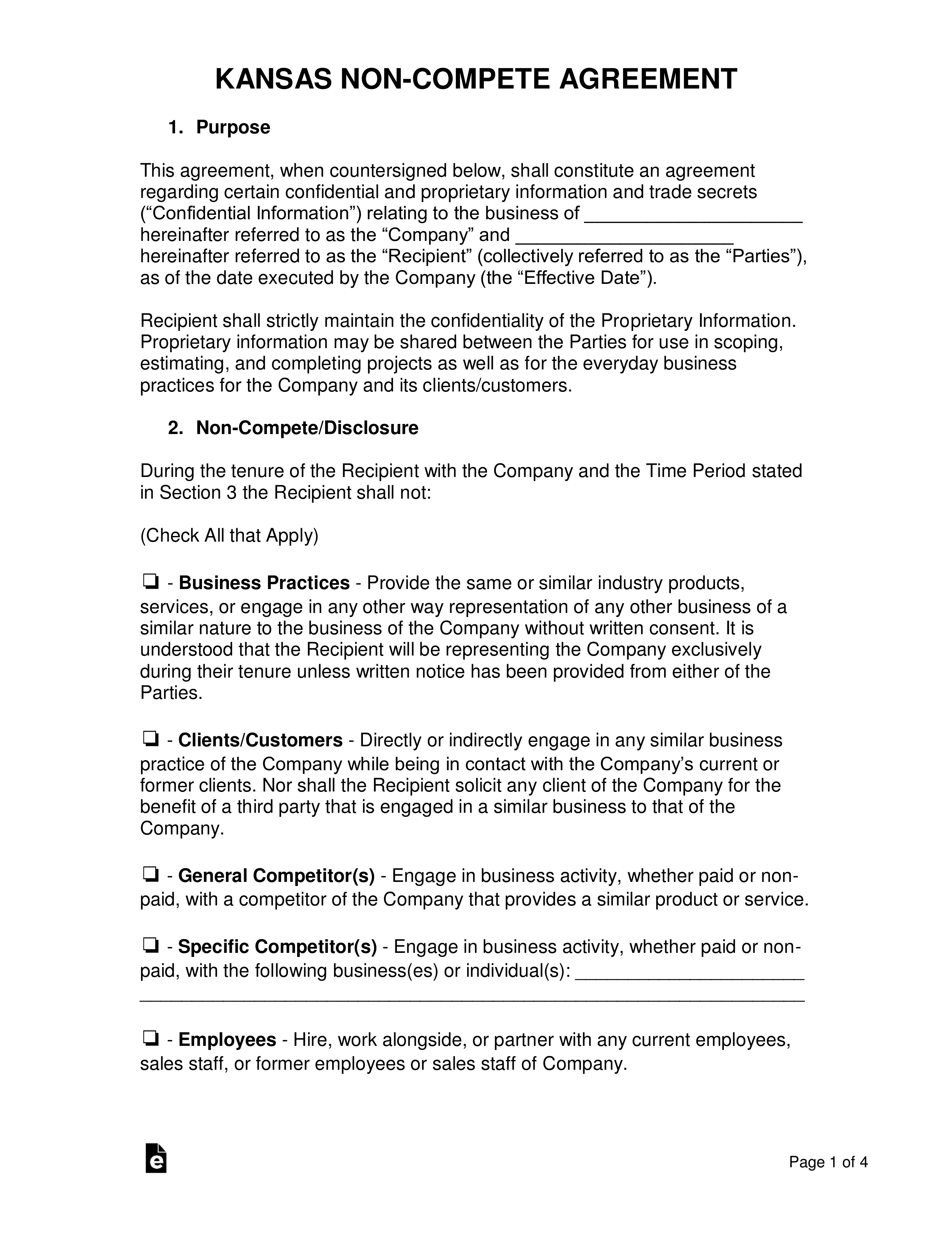Updated October 16, 2023
A Kansas non-solicitation agreement is a contract between a company and an employee that generally prohibits the employee from contacting customers, clients, employees, and contractors that they learned of while working for the company. Non-solicitation agreements can prevent other companies from taking advantage of work done by a company’s sales team and other divisions.
Is It Legally Enforceable in Kansas?
Yes. Non-solicitation agreements are enforceable if they are reasonable and offered as part of a valid contract.
The agreement must:
- Protect a valid business interest of the employer
- Not create an undue burden on the employee
- Not injure public welfare
- Contain only reasonable restrictions on duration and geographical reach
Table of Contents |
What Types of Solicitation Can Be Prohibited?
As long as the terms of the agreement are reasonable and fair to both parties, it can restrict the ex-employee from soliciting the employer’s:
- Past or current clients
- Past or current employees
- Independent contractors
- Other business associates
What Should Be Included in the Agreement?
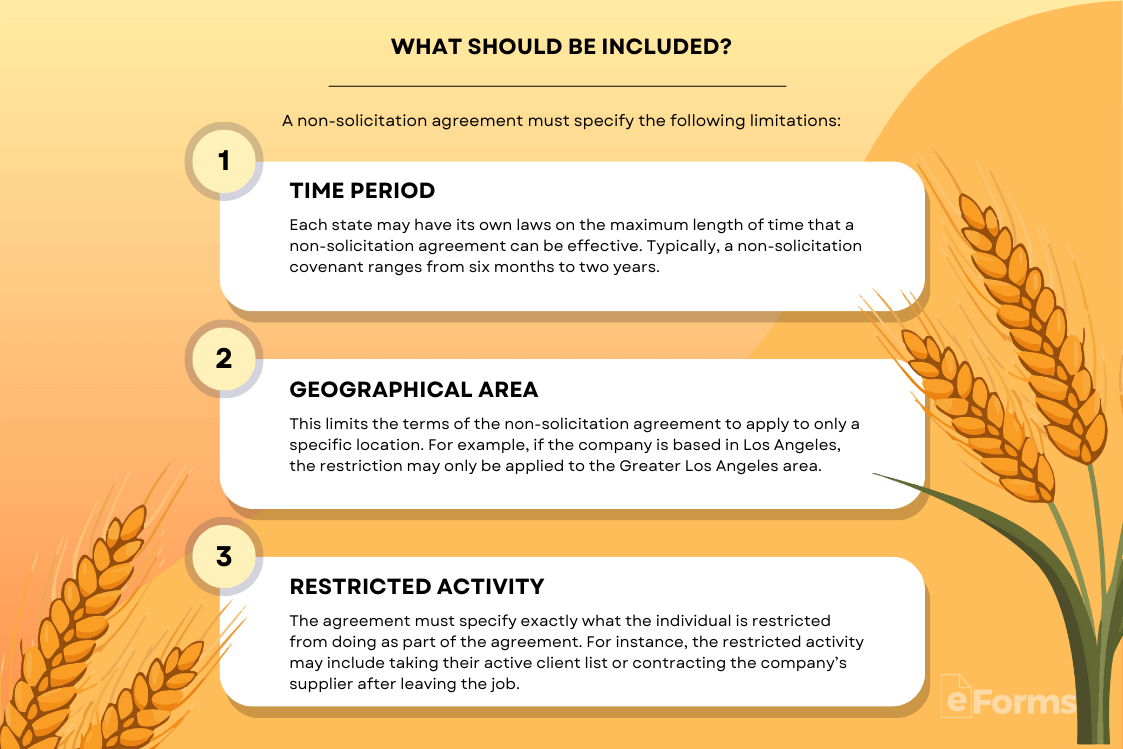
To hold up in a court of law in Kansas, a non-solicit covenant must include reasonable restrictions with regard to:
1. Duration
The agreement should state how long the terms of the restrictive covenant are enforceable. It must be considered reasonable and fair to both the employee and the employer while balancing the interest of the public.
2. Geographical Reach
This section determines the area or location where the ex-employee is prohibited from engaging in the prohibited activities. Typically, the geographical limit is based on the location or area where the employer is practicing its business.
3. Prohibited Activities
This section specifies exactly what the ex-employee is restricted from doing. This can range from soliciting specific clients or barring them from contacting any parties associated with the employer for business purposes.
Related Forms
Download: PDF, MS Word, OpenDocument
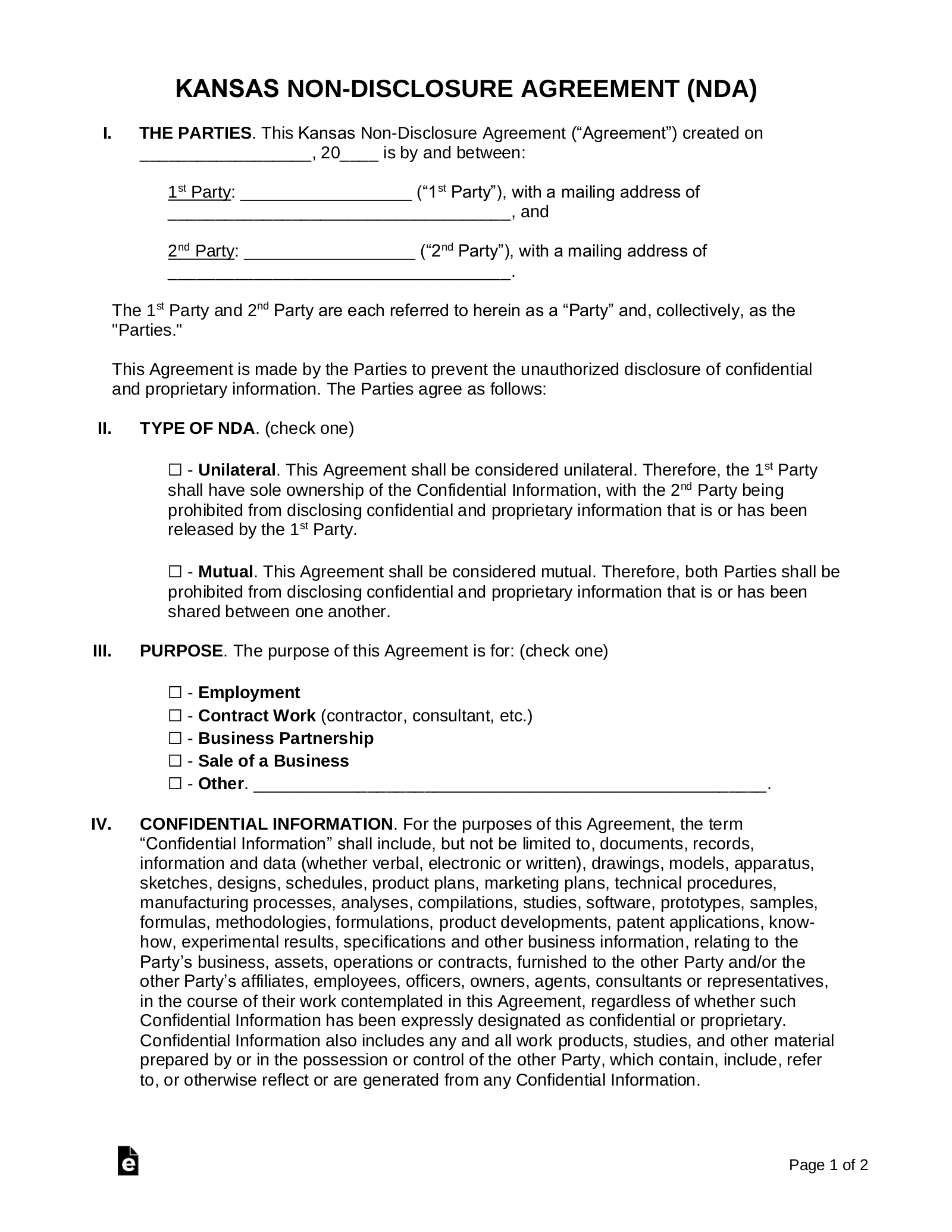 Kansas Non-Disclosure Agreement
Kansas Non-Disclosure Agreement
Download: PDF, MS Word, OpenDocument

